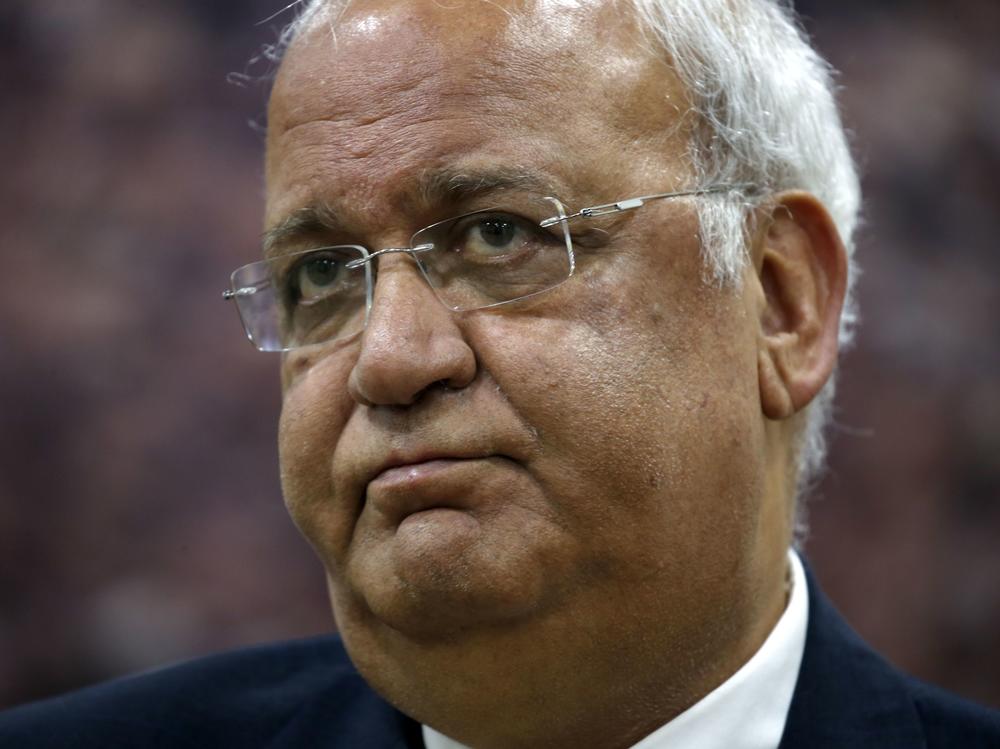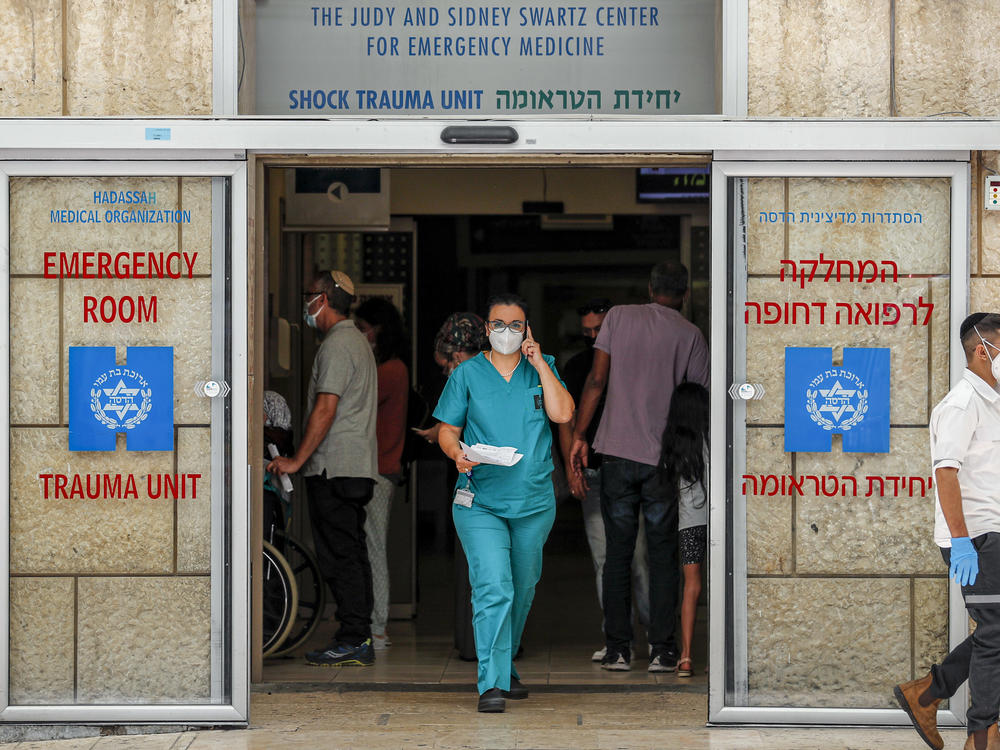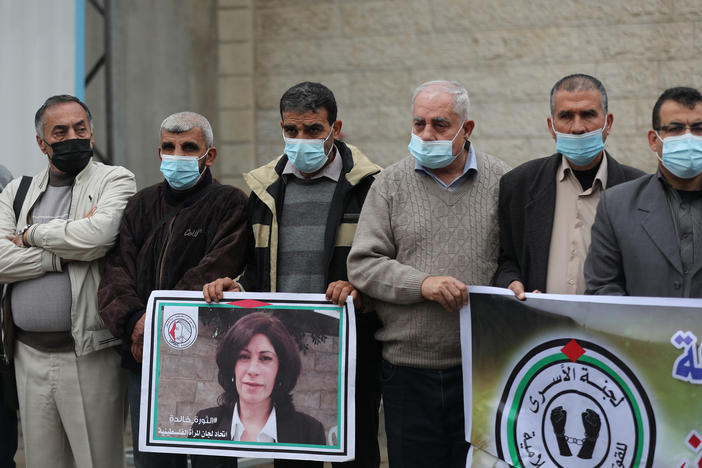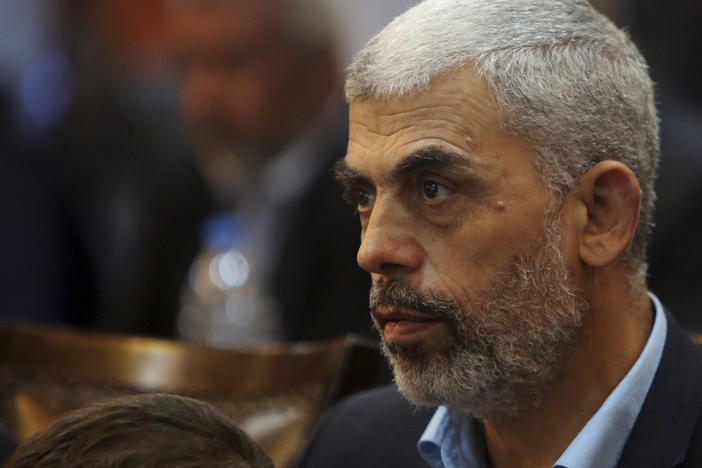Section Branding
Header Content
Top Palestinian Official Receiving COVID-19 Treatment In Israeli Hospital
Primary Content
Updated at 9:20 a.m. ET
Chief Palestinian negotiator Saeb Erekat is being treated for COVID-19 in a Jerusalem hospital, according to the hospital, after Israel gave the OK for his transfer from the West Bank.
The Palestinian Authority severed ties with Israel earlier this year. It was not immediately clear whether the request for the transfer came from the Palestinian Authority or from Erekat personally. The transfer took place on Sunday.
Erekat, 65, received a lung transplant in the U.S. in 2017 after suffering from pulmonary fibrosis. He reportedly tested positive for coronavirus earlier this month.
A PLO statement said Erekat required medical attention at a hospital after contracting COVID-19 and "due to the chronic health problems [Erekat] faces in the respiratory system."
Erekat is "critical but stable," is sedated and on a ventilator, Jerusalem's Hadassah Hospital said in a statement.
The hospital had said earlier on Monday that his condition deteriorated during the morning. He "had a quiet night but his condition deteriorated this morning, and is now critical."
"Mr. Erekat poses an immense challenge for coronavirus treatment given his lung transplant and suppressed immune system, and a bacterial infection in addition to the coronavirus," hospital spokeswoman Hadar Elboim said in a written statement.
Erekat, who the hospital reported was receiving high-flow oxygen therapy, was "receiving top-notch professional care like all serious corona patients at Hadassah," said the hospital's director, Zeev Rothstein.
Palestinian hospitals in the Israeli-occupied West Bank are subpar to Israel's advanced hospitals. Ran Yaron, a spokesman for Physicians for Human Rights-Israel, told NPR that advanced surgeries and transplants are not available in West Bank hospitals, and Israel does not permit Palestinian hospitals in the West Bank and Gaza Strip to have their own radiation equipment due to fears it could be converted into weaponry.
Palestinian patients needing advanced treatment seek care in hospitals in Israel, though many patients are currently blocked from hospital care in Israel because of the Palestinian Authority's suspension of ties with Israel and its refusal to guarantee payment of bills incurred in Israeli hospitals.
Erekat's hospitalization in Israel has sparked controversy among both Israelis and Palestinians. Israel's United Nations ambassador, Gilad Erdan, accused Erekat of "hypocrisy" for accepting Israeli treatment while supporting calls to boycott Israel. Some Israeli lawmakers said Hamas should release Israeli captives held in Gaza in exchange for Erekat's treatment. Palestinians have protested Erekat's treatment in Israel while the Palestinian Authority continues to suspend ties with Israel and block many Palestinian patient referrals to Israeli hospitals.
"I wish you would care about the health of the people the way you care about yourselves," wrote one Palestinian named Aseel Jadallah on the Palestinian Health Ministry's Facebook page.
In February, the Palestinian Authority, which governs the occupied West Bank, cut diplomatic ties with Israel over the Trump administration's Mideast proposal, which envisioned Israel annexing about 30% of the West Bank.
Erekat has been involved in most of the major Palestinian-Israeli peace negotiations, as the Palestinians' chief peace negotiator since 1995. He is a top political figure, serving as secretary general of the Palestine Liberation Organization's executive committee.
Copyright 2020 NPR. To see more, visit https://www.npr.org.
Bottom Content





